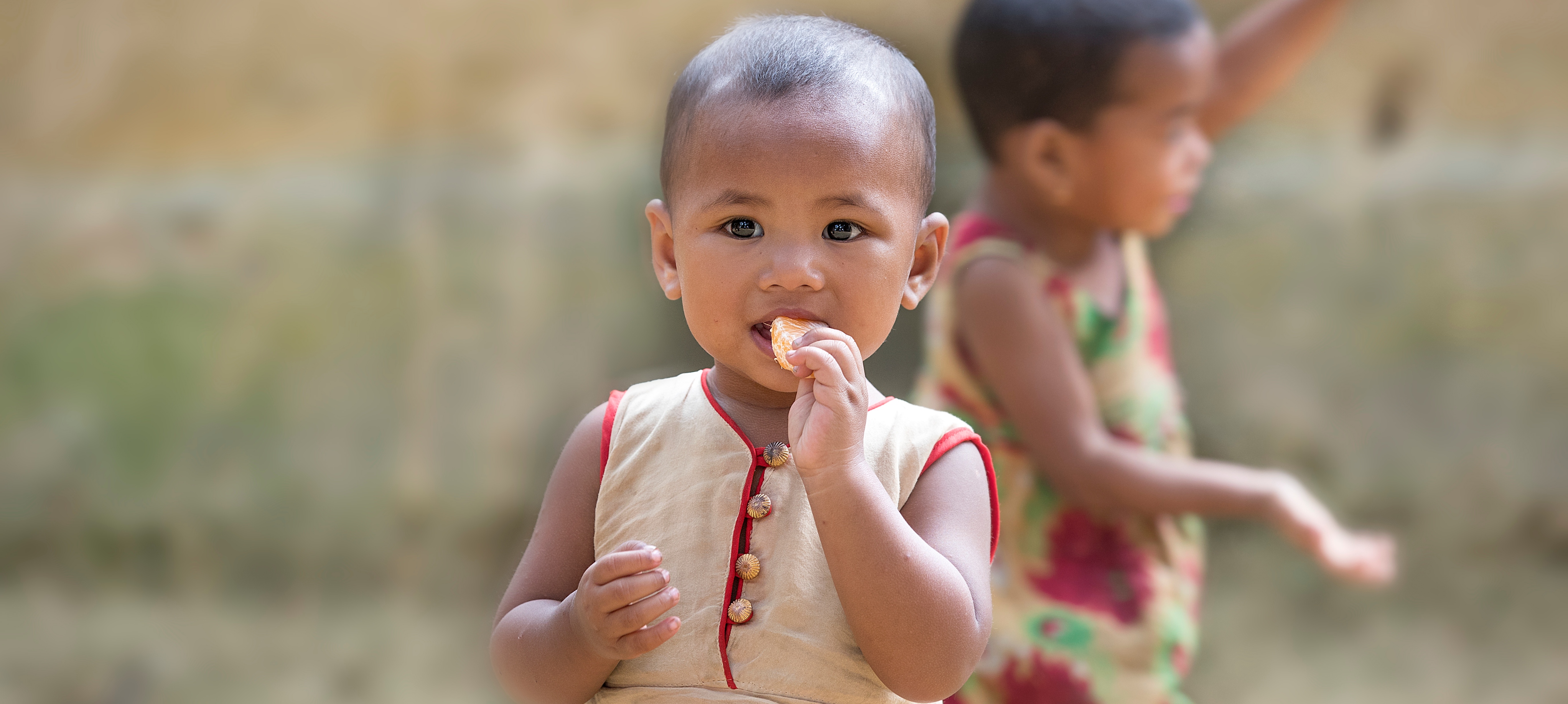This factsheet consolidates findings from five SMART surveys conducted across selected blocks in Jharkhand, Odisha, Uttar Pradesh, and Madhya Prade
Other content with the tag "Food Security".
The article records the endorsement and draft decision to adopt the policy recommendations on youth engagement and employment in agriculture and fo
The article discusses the vital contribution of terrestrial animal source foods (TASF) to food security, nutrition, and healthy diets, especially i
The article presents the draft conclusions from the 50th session of the Committee on World Food Security, highlighting key issues such as climate c
The article analyzes the impacts of the COVID-19 pandemic on food systems, livelihoods, and poverty across Asia and the Pacific.
The article stresses the crucial role of biodiversity for food security and sustainable agriculture in the Pacific Islands.
The article discusses draft conclusions from the 50th session of the Committee on World Food Security (CFS), expressing deep concern about the wors
The article provides an updated practical guide for FAO staff and partners on addressing gender-based violence (GBV) in rural settings through food
The article re-examines the role of livestock in the global food system, challenging common perceptions regarding resource competition between live
The article reviews FAO’s progress in integrating nutrition objectives into its project portfolio, following the pledge made at the Tokyo Nutrition
The article outlines FAO’s Child Wasting Prevention Action Plan (2023–2024), developed to address the increasing risk of child wasting in emergency
The article highlights FAO’s efforts to enhance capacities for developing and implementing effective trade and market-related agricultural policies
The article highlights FAO’s emergency interventions in Namibia following severe locust outbreaks affecting rural livelihoods and food security.
The article presents Bangladesh’s participation in FAO’s Hand-in-Hand Investment Forum to attract investments in food processing, post-harvest mana
The article describes the FAO-supported initiative in Bhutan to develop a national food and nutrition security dashboard, aligned with the country'
The article presents a methodological approach to adjust household consumption and expenditure survey (HCES) data for estimating the prevalence of
The article highlights the growing challenge of food import dependence in the Solomon Islands since 2001, particularly among urban populations.
This project integrated agriculture, school feeding, social protection, and migration into a multisectoral food and nutrition security initiative.
This catalogue showcases FAO’s flagship reports and key publications issued in 2021–2022 across diverse domains such as food security, nutrition, c
This FAO-supported project (2019–2021) aimed to strengthen food and nutrition security governance in Grenada, Haiti, and Saint Vincent and the Gren
FAO supported 14 Pacific countries in engaging with the UNFCCC’s Koronivia Joint Work on Agriculture.
This FAO survey assessed agricultural livelihoods and food security in Yemen across 2,452 households in all 22 governorates.
This HLPE report explores how data tools support decision-making in food security and nutrition (FSN).
This follow-up report assesses the outcomes of a project that built capacity in food security and nutrition policy across Armenia, Kyrgyzstan, and
This e-learning course introduces fundamental concepts connecting social protection, food security, and nutrition.
Following the introductory course, this e-learning module offers a detailed guide on using the ISPA-FSN tool to assess social assistance programmes
This project focused on building capacity and investment readiness in eight African countries by improving the quality and delivery of agricultural
This brief describes a project by FAO and the Ministry of Agriculture, Forestry and Fisheries of Japan to improve SDG 2.1 monitoring capacity acros
This paper proposes national-level indicators to assess how forests, trees, and agroforestry contribute to food security.
FAO’s initiative in Cameroon supported conflict-affected communities in the South West and North West regions by promoting oyster mushroom cultivat
This FAO-supported project developed food-based dietary guidelines (FBDGs) and strengthened Farmer Field School (FFS) systems to improve nutrition
Tree Aid's study in Burkina Faso demonstrates the significant impact of promoting non-timber forest products (NTFPs) like shea and baobab on food s
FAO activated anticipatory action in Madagascar to prevent a locust crisis in 2021–2022 that threatened food security across six regions.
FAO provided emergency aid to resume marine fishing in Mozambique following Cyclone Idai.
FAO implemented early cash transfers in Sri Lanka to support 8,750 smallholder farmers affected by economic crisis and fertilizer shortages.
This joint FAO/WFP report for the UN Security Council tracks food insecurity in 20 conflict-affected countries.
This project, operating in Sub-Saharan Africa and Asia, focuses on building resilience in city region food systems (CRFS) against climate and pande
This synthesis captures FAO’s performance across five thematic areas in Africa: sustainable production, food security and nutrition, climate change
This fact sheet outlines FAO's project in Afghanistan aimed at mitigating drought impacts by delivering cash transfers, livestock protection, home
This FAO project promoted small-scale greenhouse vegetable production to improve nutrition, incomes, and climate resilience in rural Tajikistan.
This FAO report analyzes the war's impact on Ukraine’s agriculture and food systems.
This summary version of SOFI 2022 highlights the growing global hunger crisis.
FAO launched this initiative to support over 2.7 million people in Afghanistan with wheat cultivation, livestock protection, home gardening, and ca
This FAO brief summarizes findings from a 2021 household survey on agricultural livelihoods and food security in Mozambique.
This FAO study assesses the trade-offs of fish-based feed production in nine African countries.
This High-Level Panel of Experts note identifies seven interconnected challenges for food systems transformation: resilient supply chains, urban fo
This document compiles expert profiles and thematic research interests of the Scientific Advisory Committee on livestock.
This FAO project in South Hamgyong and Kangwon provinces aimed to boost food security by enhancing mussel and oyster farming.
This statement reviews the negotiation status of the CFS Voluntary Guidelines on Gender Equality and Women’s and Girls’ Empowerment in food securit
This presentation by Dr. Qu Dongyu, FAO Director-General, explores the potato's historical and current role in global food security.
This FAO Council document outlines the drivers and impacts of the ongoing food crisis.
This paper explores the motivations of forest-fringe communities in Ghana to convert forest lands for subsistence farming, despite conservation eff
This report assesses how the Ukraine war has disrupted agrifood imports and increased food insecurity in Egypt, Jordan, Lebanon, Morocco, and Tunis
This profile outlines the strengths and challenges of Bhutan’s food systems.
This article calls for urgent global food systems transformation to enable healthier diets and reduce malnutrition.
The FAO-JICA REEFFISH project aimed to enhance resilience among coral reef fishing communities in Africa.

This FAO report assesses global cereal production and identifies 45 countries in need of external food assistance, driven by conflict, economic dow

This project in Papua New Guinea tackled food insecurity and climate vulnerability by promoting sago palm production.

This review details the scale of postharvest grain losses in developing countries and promotes hermetic storage technologies as a low-cost, high-im

The CASCADE (Catalyzing Strengthened Policy Action for Healthy Diets and Resilience) project in Uganda aims to combat malnutrition and food insecur

The report explores the role of millets in global food security, emphasizing their climate resilience, nutritional value, and potential for diversi

This report details Bangladesh’s efforts to enhance food security and nutrition through policy interventions and capacity-building programs.

This report highlights the impact of sustainable soil management (SSM) in addressing hidden hunger and improving food security in Sub-Saharan Afric

This report outlines efforts to promote sustainable horticulture by improving production systems, ensuring food safety, and increasing consumer acc

This report explores the intersection of food security and trade, emphasizing how trade policies influence food availability, affordability, and ac

The concept note outlines the objectives and agenda of the Regional Conference on Food Systems Sustainability organized by the Black Sea Economic C

This report analyzes cropland distribution in Sindh, Pakistan, as a key indicator of food security.

The FAOSTAT Analytical Brief presents data on global food supply trends from 2010 to 2021, covering dietary energy supply (DES) across regions and

This report examines the role of small-scale fisheries (SSF) in Uganda in supporting nutrition, livelihoods, and economic sustainability.

This report provides an analysis of food security and nutrition trends in Europe and Central Asia, highlighting the impacts of the COVID-19 pandemi

This program evaluation report assesses the effectiveness of the FIRST Programme, a joint initiative by FAO and the EU aimed at enhancing food secu

This policy brief summarizes the hidden costs of agrifood systems and introduces True Cost Accounting (TCA) as a tool to measure and address them.

This research study explores the relationship between diet cost and nutritional quality in Guadeloupe and Martinique, where food prices are 30% hig

This document, published by the Food and Agriculture Organization (FAO), provides a comprehensive overview of forgotten and underutilized food crop

This document provides an overview of the UN Committee of Experts on Food Security, Agricultural, and Rural Statistics (UN-CEAG), summarizing its a

This paper forms the first part of a series of three papers exploring the enabling environment, business models, and behaviour change components of

This FAO, IFAD, UNICEF, WFP, and WHO flagship report assesses global food security trends, revealing that nearly 690 million people faced hunger in

The FAO International Day of Potato 2024 report highlights the significance of the potato crop in global food security, employment, and sustainable

This FAO, IFAD, and WFP technical note presents a Theory of Change (ToC) framework for integrating gender-transformative approaches (GTA) into food

The AgroEco2050 foresight study, led by the Government of Andhra Pradesh, CIRAD, and FAO, examines two future pathways for Andhra Pradesh’s food sy

This FAO-supported project tackled Ethiopia’s high post-harvest losses (25–35% for cereals and pulses) through improved storage, policy advocacy, a

FAO supported the Food Security and Agriculture Productivity Project (FSAPP) in Bhutan, strengthening rural livelihoods through climate-smart agric

The project aims to enhance sustainable food systems in Bhutan by integrating environmental benefits with the country's Gross National Happiness (G
This FAO report assesses food security in Economic Cooperation Organization (ECO) member countries, analyzing trends in food availability, trade, a

This FAO-led initiative in Malawi, funded by a $3 million Flexible Voluntary Contribution, aims to enhance resilience against climate change while
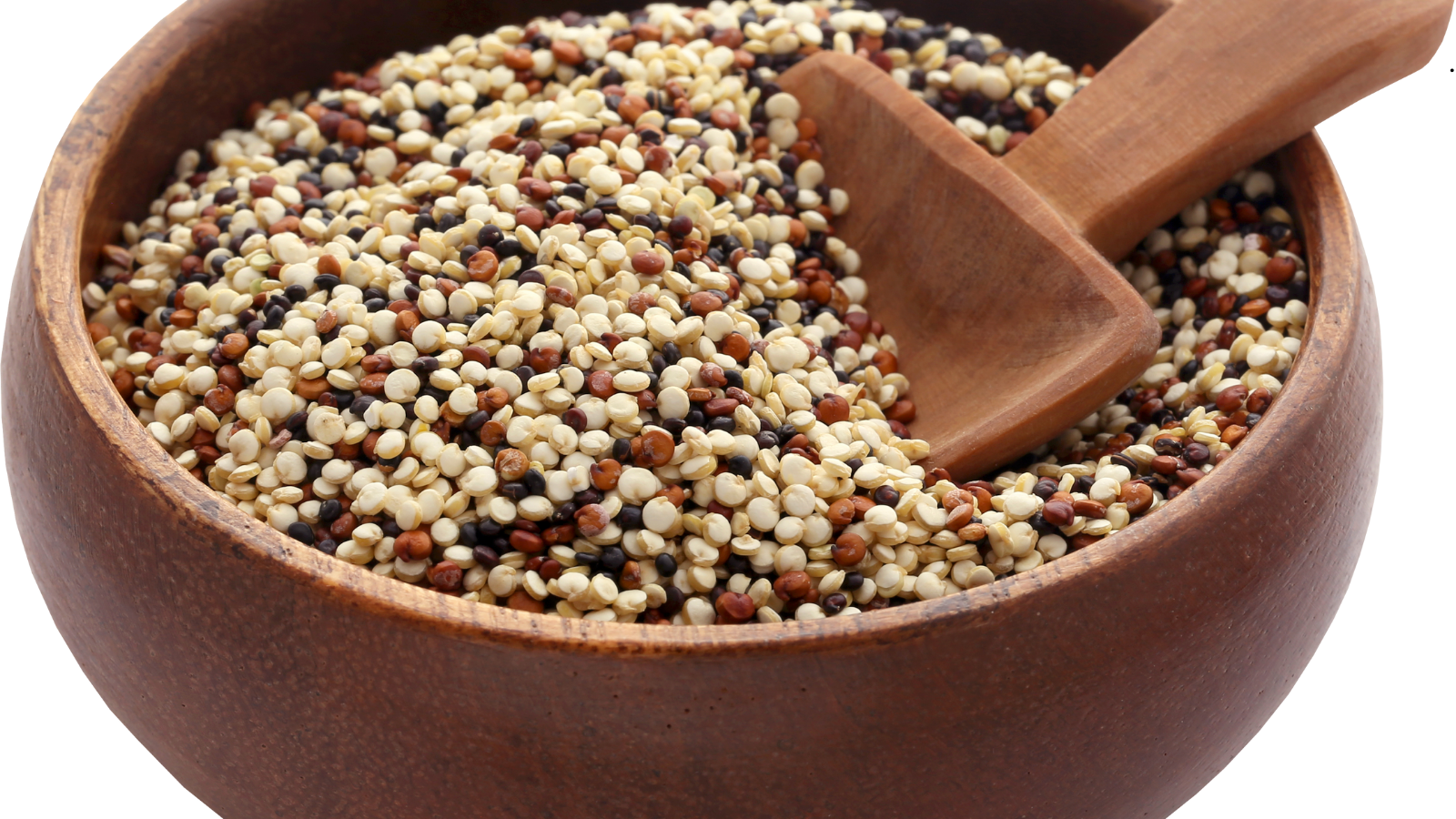
This report by the Food Systems Countdown Initiative tracks the transformation of global food systems across 50 indicators.

This FAO-supported project assisted Mozambique’s government in improving agricultural policy and planning through enhanced statistical data collect

This FAO report highlights the role of parliamentary alliances in advocating for food security and nutrition policies in the Caribbean.

This flagship report by FAO, IFAD, UNICEF, WFP, and WHO examines global food security and nutrition trends.

This systematic review examines the impact of universal free school meals on various student outcomes.

This issue paper discusses the role of biofortification in addressing micronutrient deficiencies, or "hidden hunger," in low- and middle-income cou

This study explores the role of nutritional status in reducing COVID-19 mortality among older adults in Kerala, India.

This report highlights Nigeria’s high burden of malnutrition, which results in significant economic and health costs.

This report assesses the intersection of climate action and nutrition, revealing that integration between the two is weak across global policies an

This study investigates how nutritional knowledge, attitudes, and practices (KAP) and kitchen characteristics affect women's dietary quality in Eth

This report highlights the potential for gender-smart investments in nutritious food value chains, emphasizing how targeted funding can enhance eco

This report focuses on nutrition interventions in South Asia, particularly within tea estates in Assam, India, where workers, primarily women, face

This report summarizes a workshop discussing strategies to increase demand for neglected and underutilized crops (NUS) under the Vision for Adapted

This report discusses the Nigeria Food Systems Dashboard (Nigeria FSD), an online platform designed to support data-driven decision-making for food

This report examines how women’s self-help groups (SHGs) in Bihar, India, are enhancing food security and nutrition resilience through the Integrat

This report introduces the Bangladesh Food Systems Dashboard (BDFSD), a platform designed to provide consistent and easy-to-access food systems dat

This report explores how national food policies can be effectively implemented at sub-national levels to drive food systems transformation.

This report, developed by the Food Systems Countdown Initiative, presents a comprehensive analysis of global food systems using 50 key indicators a

This review explores the interconnections between water security and nutrition, emphasizing drinking water access, food production, hygiene, and cl

This study examines food loss and waste (FLAW) as a global issue with economic, environmental, and moral implications.

This climate-focused report discusses the interconnection between climate change and food security in Nigeria.

This study provides a historical overview of nutrition and health trends in the Middle East, examining the impact of urbanization, globalization, a

This GAIN brief explores how Human-Centered Design (HCD) was applied to improve Nigeria’s National Homegrown School Feeding Programme (NHGSFP).

This study examines the key drivers of food and nutrition insecurity in ten emergency-affected countries in the Eastern Mediterranean region: Afgha

This report introduces the Mozambique Food Systems Dashboard, a data-driven tool launched in March 2024 by SETSAN (Mozambique’s National Secretaria

This report highlights the workforce nutrition initiative for tea estate workers in Malawi, implemented from February 2021 to March 2023 by GAIN an
This report presents the workforce nutrition programme implemented in Kericho County, Kenya between January 2020 and December 2022 by GAIN and the

This policy analysis report examines how national biodiversity strategies (NBSAPs) integrate nutrition considerations.

This study presents the Egg Hub Model, a scalable agricultural business model aimed at increasing egg production, availability, and consumption in

This report highlights the impact of the Healthy Diets for Tea Communities programme in Malawi, focusing on tea estate workers and smallholder farm

This report summarizes the Healthy Diets for Tea Communities programme, a public-private initiative by GAIN and the Ethical Tea Partnership, conduc

This study explores minimum tillage (MT) as a climate-smart agricultural practice, particularly in Ghana.

This review explores the impact of climate change on nutrition and food security in the Eastern Mediterranean Region (EMR).

This research discusses Afghanistan’s ongoing political and economic transition and its implications for nutrition.

The article examines the complex interplay between food crises and violent conflicts, highlighting the need for integrated humanitarian assistance,

The report from the Global Alliance for Improved Nutrition (GAIN) examines the integration of nutrition-sensitive social protection systems to addr

This report highlights the role of fruit tree cultivation in combating malnutrition and promoting environmental sustainability in Rwanda.

This paper evaluates the economic returns of supporting agrifood micro, small, and medium enterprises (MSMEs) in 90 low- and middle-income countrie
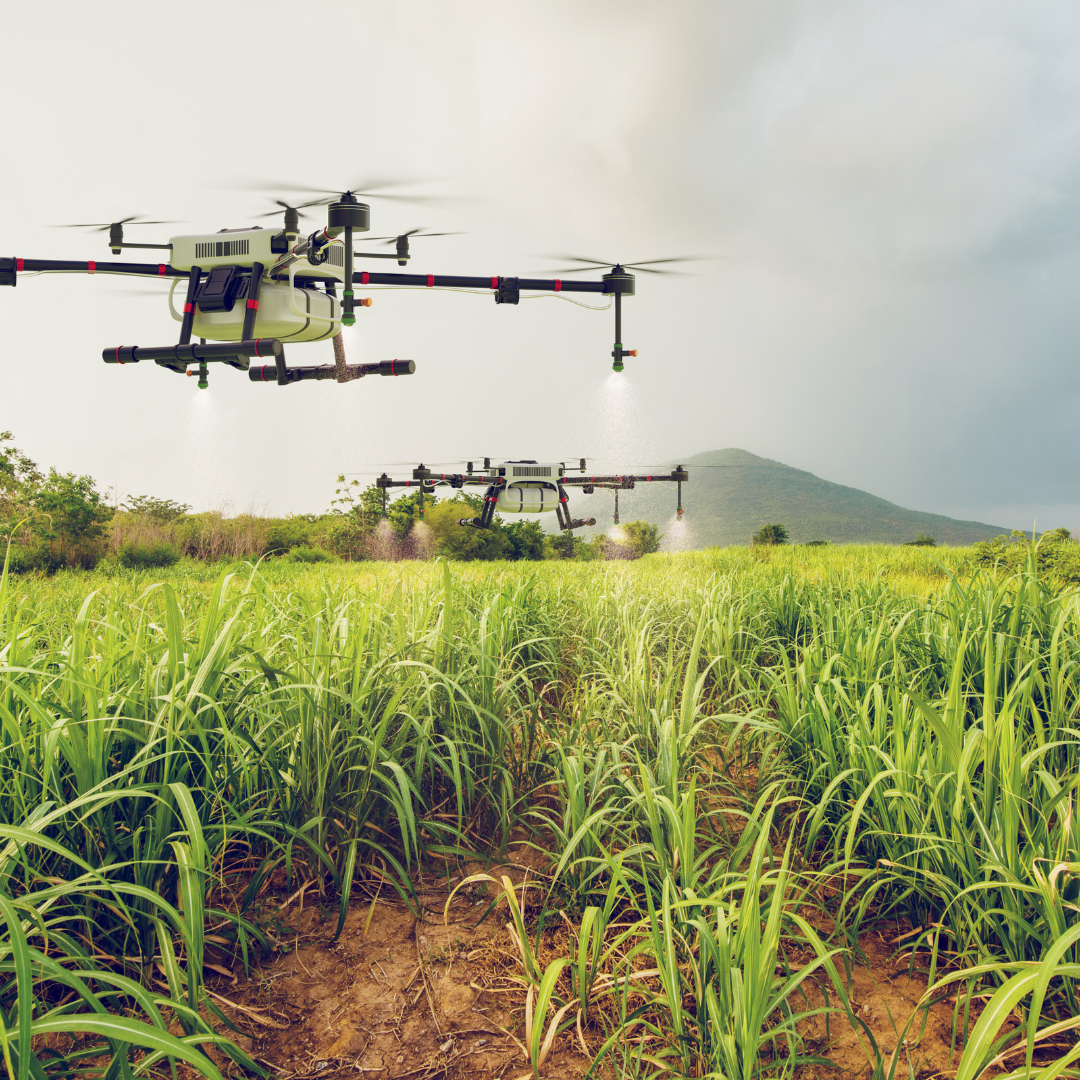
This policy brief evaluates Nigeria's 2016–2025 National Policy on Food and Nutrition and outlines the need for a revised, food systems-transformat

This report details the Global Alliance for Improved Nutrition (GAIN) activities in Mozambique aimed at improving food security and nutrition.

This review examines the role of traditional food markets in supporting food security, economic stability, and social cohesion for vulnerable popul

This mini-review explores the role of traditional food markets in ensuring food and nutrition security in sub-Saharan Africa, emphasizing gender dy
This study explores the relationship between poverty alleviation and food security among 407 rural Vietnamese households from 2016 to 2018.

This study evaluates the economic and food security implications of trade disruptions in Sweden's agricultural sector.

This review examines the impact of the Ukraine-Russia conflict on food security in North Africa.

This study explores the relationship between crop diversification and food security in six districts of Northern Bangladesh.

This review examines Tanzania's efforts in addressing postharvest food loss (PHL) within its agricultural policy framework, particularly under the

This study highlights the nutritional and environmental advantages of millets, referred to as "Shree Anna," in India.

This research evaluates food security in Mexico by assessing food availability across 2,471 municipalities.

This study evaluates the welfare impacts of adopting Climate-Smart Agriculture (CSA) among 386 households in Zimbabwe using an endogenous switching

This study explores the impact of Agricultural Stakeholder Panels (ASPs) on post-harvest loss reduction in Malawi.

This study evaluates the relationship between the biodiversity of locally cultivated crops and household food security in Northern Iran.

This systematic review evaluates government policies aimed at promoting sustainable crop production in Botswana amidst climate change challenges.

This review critically examines global research on how the COVID-19 pandemic affected food security, using PRISMA and bibliometric analysis.
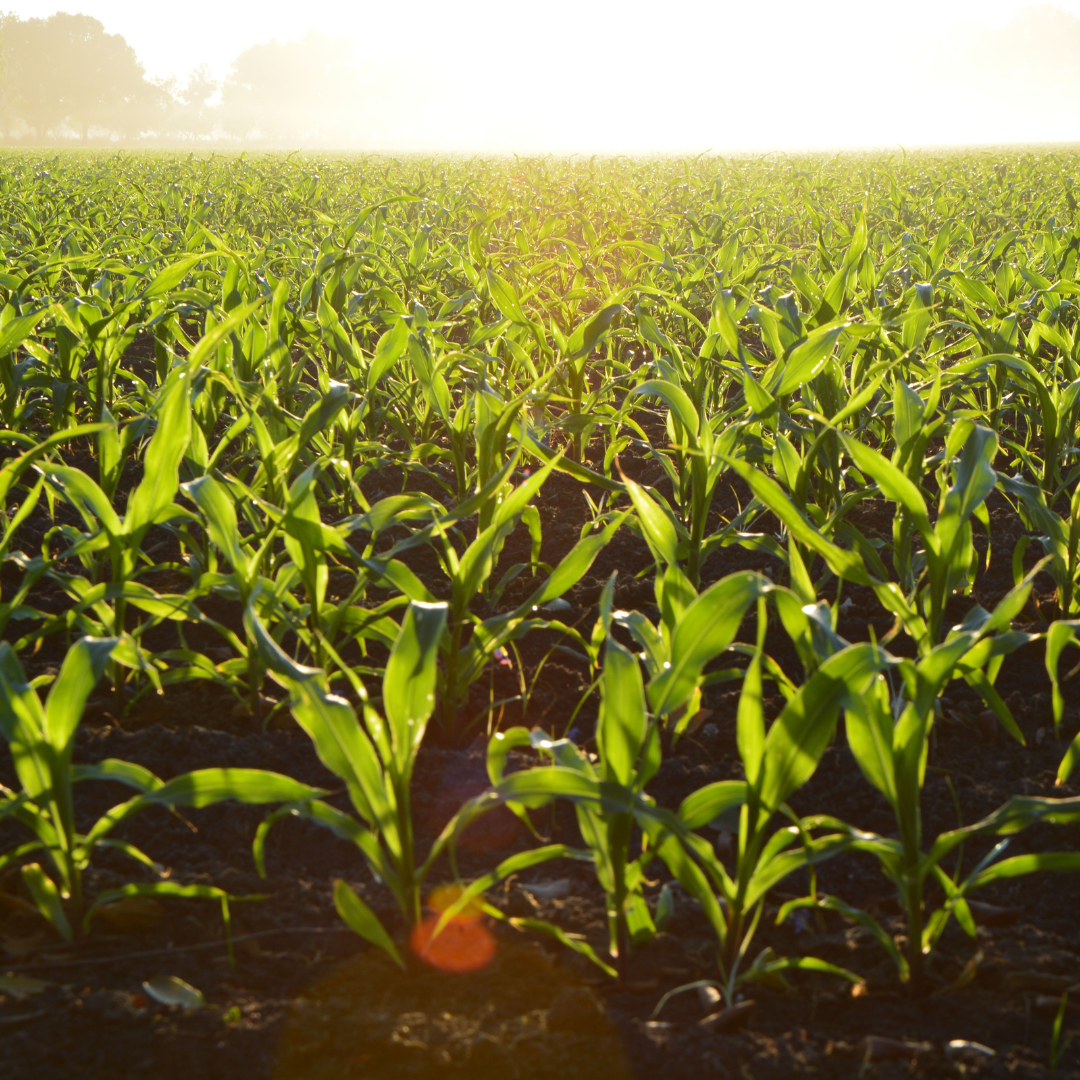
This editorial explores the evolution of agricultural research, emphasizing the shift from local production to global agri-food systems focusing on

This study examines the effects of climate change adaptation strategies on food security and sesame production in Western Ethiopia.

This cross-sectional study identifies inadequate consumption of vitamin A-rich foods among lactating mothers in Ethiopia, with 88.5% of participant

This paper examines food security challenges in Africa through the lens of the right to food, emphasizing equity and justice.

This review highlights the role of wet markets in Southeast Asia as critical food environments.

This study investigates the relationship between food security, household income, and dietary quality in young adults aged 19–34, using data from t

This study evaluates the role of Kenya’s informal milk market in enhancing nutrition and food security.

This review explores the interconnected challenges of food security, climate change, and gender inequality.

This study quantifies wheat yield gaps across Morocco’s major production regions, analyzing the effects of precipitation, temperature, and soil moi

This review evaluates the benefits and challenges of using Moringa oleifera products in poultry nutrition.
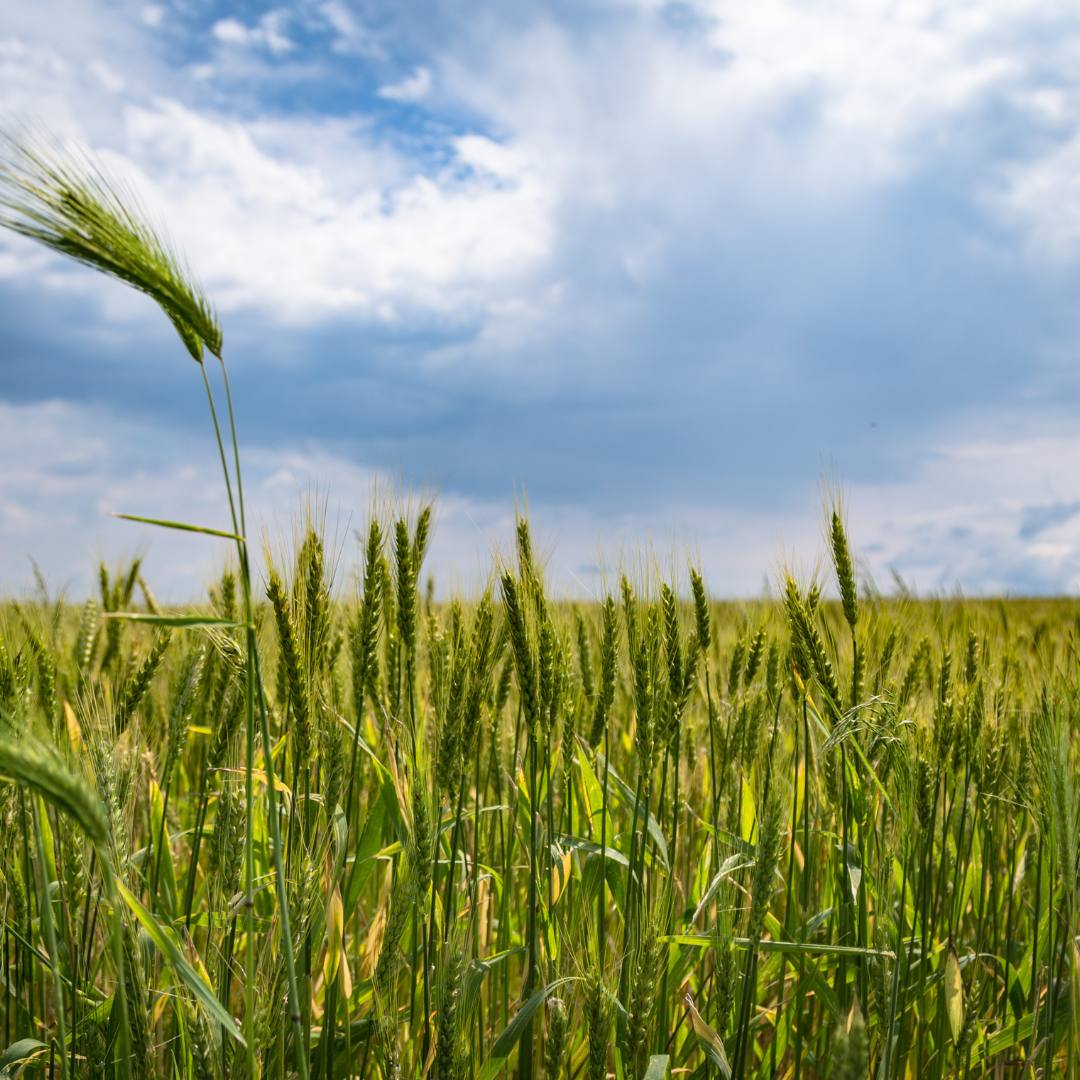
This study examines the simultaneous adoption of drought-tolerant maize varieties (DTMVs) and other climate-smart agricultural practices (CSAPs) am

This commentary examines the complex relationship between food loss, food waste, and food security.

This review discusses the potential of intercropping systems to improve the nutrient and bioactive compound profiles of plants.

This review examines biofortification as a sustainable strategy to address micronutrient deficiencies in staple crops.

This study analyzes the factors influencing food waste behaviors among consumers in China, where food loss and waste have significant implications
This study examines Tanzania’s agricultural policy framework in relation to postharvest food loss reduction, in light of Tanzania's commitment to t

This comprehensive review examines the contributions of sustainable fisheries and aquaculture to global food security, focusing on areas like econo

This review explores the nutritional benefits and sustainable cultivation of minor millets, including finger, foxtail, proso, barnyard, and little

This review discusses the potential of grain amaranth as a nutrient-dense, drought-tolerant crop suitable for diverse climates.

This review discusses Africa’s progress toward achieving the UN SDG 2: Zero Hunger.

This study examined participant experiences with federal nutrition assistance programs in Vermont during the early months of the COVID-19 pandemic,

The paper "The affordability of a healthy and sustainable diet: an Australian case study" by Tara Goulding, Rebecca Lindberg, and Catherine Georgin

The paper "A mixed-methods study to determine the impact of COVID-19 on food security, food access and supply in regional Australia" by Stephanie L

The paper "Assessing the internal validity of a household survey-based food security measure adapted for use in Iran," published in Nutrition Journ

The paper "Promoting Entomophagy to Enhance Food Security and Nutrition in Kenya," published in The International Journal of Progressive Research i

The report "Status of Food and Nutrition Security in Kenya: An Implementation of the Framework for Harmonizing Nutrition Indicators" evaluates food

The thesis "Empowering Women in Refugee Camps through Sustainable Agriculture for Nutrition: A Case Study of Kakuma Refugee Camp in Kenya" by Sarah

The paper titled "Determinants of Food and Nutrition Security of Tribal Communities in the Hill and Mountain Regions: Empirical Evidence from North

The article titled "The Government’s Role in Sustainable Food Chains: Facing Climate Change" by Victor M. Rodríguez-Moreno and José A.

The article titled "Global Economic Fallout of COVID-19: In-Depth Review of Market Dynamics, Employment Trends, Fiscal Policies, Food Security, and
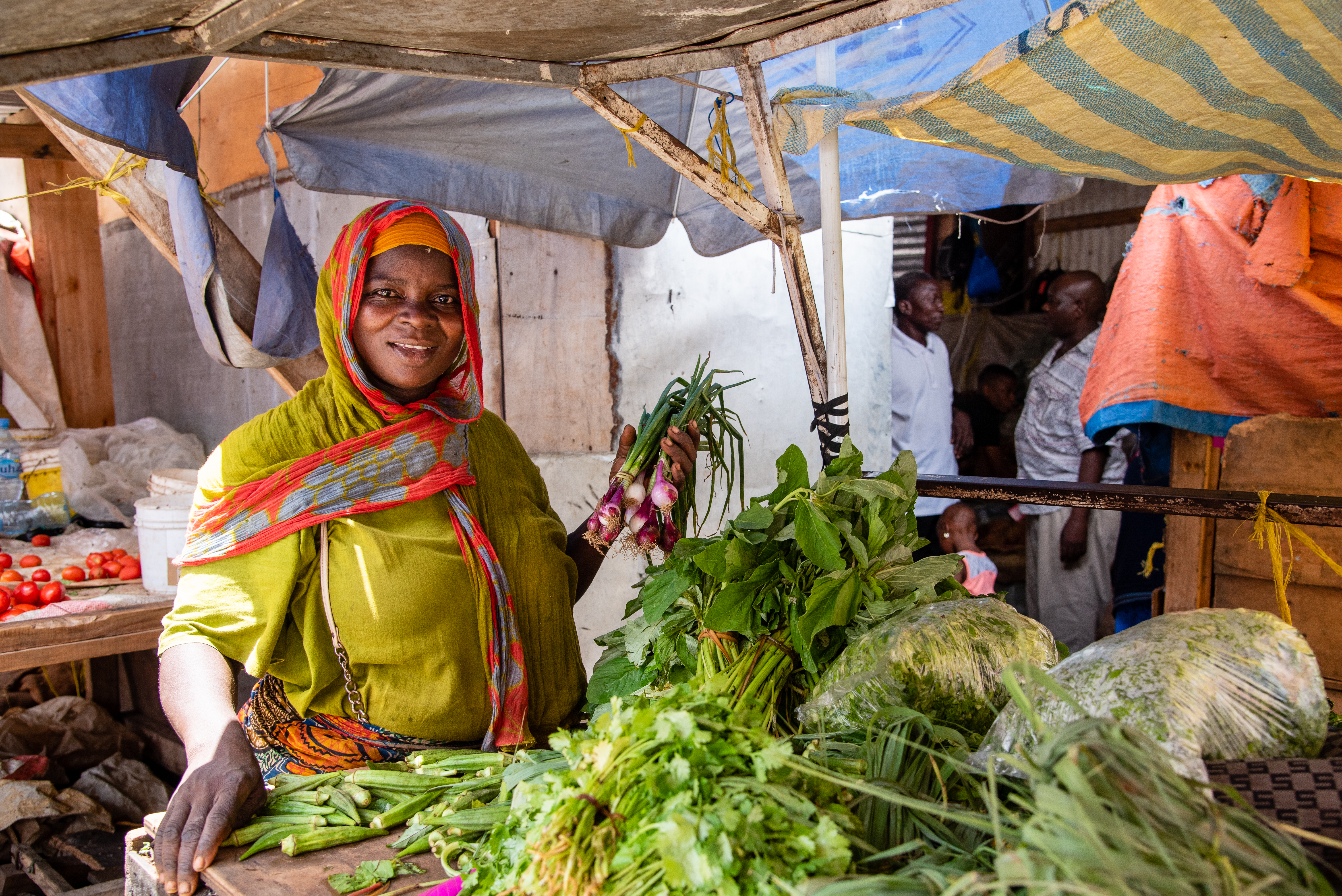
This report provides a comprehensive analysis of food and nutrition security in Kenya, emphasizing the disparities between urban and rural areas an
This study, authored by Jin Zhao and colleagues, delves into the impact of dietary changes and climate change on food security.

This study, authored by Rute Ramos da Silva Costa and colleagues from the Universidade Federal do Rio de Janeiro, examines how racism intersects wi

This book examines the role of innovative food processing technologies in achieving sustainability and nutritional security.

This article presents a systematic review of the literature on policy options to improve food security and nutrition in developing countries, and a

This article presents a systematic review of the literature on policy options to improve food security and nutrition in developing countries, and a

Reducing post-harvest loss conserves resources such as natural, human, and financial inputs that help reduce poverty, raise househ

Food systems are key to achieving the Sustainable Development Goals (SDGs), yet their current trajectory is unsustainable. The way

Investment in sustainable food production in developing countries is heavily constrained by

Urban food systems have increasingly been recognised as a topic that needs to be better understood, in order to address issues of urban food securi

This report provides an update on global progress towards the targets of ending hunger (SDG Target 2.1) and all forms of malnutrition (SDG Target 2

The report, Reducing inequalities for food security and nutrition, has been produced by the High Level Panel of Experts on Food Security a

Achieving food and nutrition security and ending hunger is a complex and multi-faceted global challenge, which requires urgent attention, particula

The world is facing a malnutrition crisis in the midst of rising rates of urbanization; more than half of the world’s population lives in urban are

To achieve the Sustainable Development Goal of zero hunger, multi-sectoral strategies to improve nutrition are necessary.

This open access book compiles a series of chapters written by internationally recognized experts known for their in-depth but critical views on qu

High-performing food systems provide healthy and nutritious diets. They create dignified livelihoods for producers and benefit the economy.

This volume – a critical product of the Scientific Group of the UN Food Systems Summit
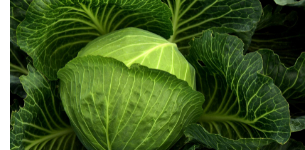
In his book Doing Well by Doing Good, Derek Tribe made the case for investing in agricultural research in our developing country neighbours.

The Biden-Harris Administration envisions an America where no one wonders whether they will have enough money to put food on the table, where the h

Many countries in the world, especially in Sub-Saharan Africa (SSA), are battling with fundamental sustainable development challenges such as wides

Nutrition plays a key role in supporting the human immune system and reducing the risk of infections.

The State of Food Security and Nutrition in the World 2022 has been prepared by the FAO Agrifood Economics Divi

Ultra-processed foods (Nova group 4) are industrial formulations made by deconstructing whole foods into chemical constituents, altering them and r

UNICEF recognizes the importance of engaging business to achieve nutrition results for children.

Please read here the Key messages and the recommendations that emerged for the Dialogue #3 -- Impacts of the Russia-Ukraine War on Nutrition, Food
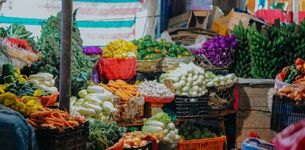
Food affordability is an important determinant of food choice and access, driving dietary patterns, nutrition status and overall health and environ



